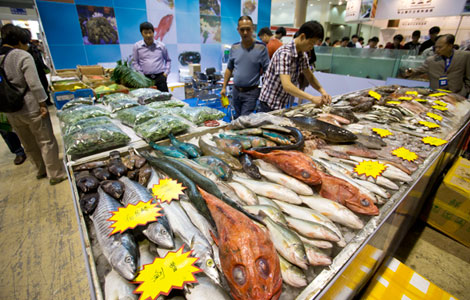
Like it or not, the simple reality is that the government administrative offices sometimes do act as lawyers and courts to mediate within disputing organizations in order to protect general order and stability.
This time, the Shanghai SASAC performed very well by building bridges between the two sides in the dispute and engineering their reconciliation before the company hit bigger trouble.
Other people, however, do not think Shanghai SASAC did the right thing.
Zhou Junsheng, a financial commentator, wrote in an article in Securities Times on May 20 that the only connection the commission has with Jahwa United is through its second largest shareholder, Shanghai Jiushi Corp, which is owned by the Shanghai municipal government, which holds just 4.9 percent of the equity.
As a result, Zhou added, Shanghai SASAC has little power to exert any significant influence on major shareholders and the board. The moment when the commission sold Jahwa Group to Ping An in 2011, it transferred all the decision-making rights concerning the company as well as Jahwa United, its subsidiary, to Ping An.
Zhou said that apparently Shanghai SASAC has used administrative power to intervene in the affair. It seems to have been quite effective in mitigating Ge's anger, tone down the media hype and get everyone to sit down at the table to talk. However, the incident has strengthened the government's stance in meddling with economic affairs.
The reason for Shanghai SASAC's interference, said Zhou, was because of its worry that if Ge is kicked out, Ping An might sell Jahwa Group to a foreign-owned enterprise and ruin the national brand. Therefore the government's involvement was timely and justified. He said such fears are groundless for two reasons.
First, Ping An may not find a better suited person to succeed Ge.
Second, whether Jahwa prospers or perishes depends not upon the government's protection but the quality of its products and managerial expertise.
Therefore, Shanghai SASAC should leave it to the company to settle any internal disputes, said Zhou.
According to an interview given by Ge to China Entrepreneur, a Beijing magazine, in December 2011, it was because of the desire to reduce governmental interference that Ge actively pushed for the deal - State ownership had put too many restrictions on his grand plan of turning Jahwa Group into an international fashion franchise with various product lines.
Also, limitations on bonuses for managers, which then did not exceed 30 percent of annual salary, stunted his motivation to work harder, Ge told China Entrepreneur.
An Hui, an analyst with Securities Times in Beijing, said in an article published on May 22 that it is common for major shareholders and managers to hold different opinions. However, they eventually reach a consensus after making compromises. That happens because of the invisible hand of the market at work to balance everyone's interests.
The visible hand of the government, added An, only has to provide a fair and sound environment for the enterprises to grow and guard against monopoly without getting involved in the competition or the internal disputes of any particular company. In other words, the government should manage from a macro perspective instead of a micro one.
 HK's new cruise terminal receives luxury liner
HK's new cruise terminal receives luxury liner
 Future points to carbon trading
Future points to carbon trading
 Seafood businesses flounder amid spending cut
Seafood businesses flounder amid spending cut
 Equities slump amid slow-growth estimates
Equities slump amid slow-growth estimates
 Auto show opens with much fanfare in Xi'an
Auto show opens with much fanfare in Xi'an
 Sunnylands summit fuels Chinese tourism interest
Sunnylands summit fuels Chinese tourism interest
 'Palace on wheels' on sale for $3.13m in Dubai
'Palace on wheels' on sale for $3.13m in Dubai
 Fortune smiles on Chengdu as forum concludes
Fortune smiles on Chengdu as forum concludes